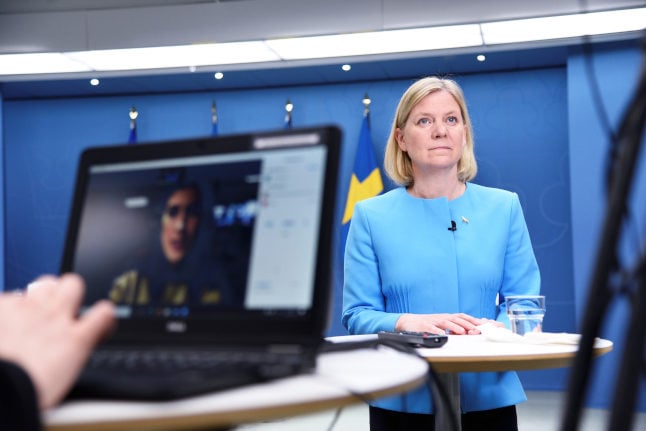Finance Minister Magdalena Andersson made the announcement at a press conference on Tuesday morning, joined by her Social Democrat colleague Health Minister Lena Hallengren, and Deputy Finance Minister Åsa Lindhagen of the Green Party.
They said another seven billion kronor (approximately $804 million) would be earmarked for Covid-19 care and other types of healthcare that have been postponed due to the pandemic, as well as purchasing vaccine and carrying out vaccinations.
The money comes in addition to previous cash boosts. For example, two out of the seven billion will go directly to Covid-19 care and postponed healthcare, which means six billion kronor in total will be earmarked for this area in 2021.
Another 1.65 billion kronor will be funnelled into contact tracing by Sweden’s regions and the Public Health Agency, bringing the total budget for this area to 10.5 billion in 2021.
The proposal is part of a series of amendment budgets that have been rolled out in the past year to cope with the financial impact of the pandemic, as well as the government’s annual spring amendment budget, which is set to be presented in full on April 15th.
A number of temporary pandemic measures will in addition be extended, including a decision to scrap Sweden’s first unpaid day of sick leave, and the decision not to require a doctor’s note in the first two weeks of sick leave, to encourage people to stay at home if they fall ill.
These measures will be extended until Sweden’s vaccination target (to offer the Covid-19 vaccine to the entire adult population) has been reached, said the government.
Sweden last week formally abandoned its earlier plan to offer Covid-19 vaccinations to all adults in the first six months of 2021, setting a new target of August 15th and limiting that deadline to first doses only.


 Please whitelist us to continue reading.
Please whitelist us to continue reading.
Member comments